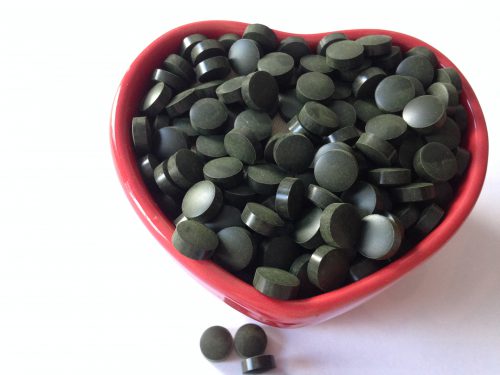Spirulina and the immune system is an exciting topic. Why? The immune system is a complex of ruthless guards who can stand against intruders of every kind. The immune system’s primary function is to recognize, detect, and then kill invading pathogens, such as bacteria, fungi, parasites, and viruses. Spirulina, a source of active ingredients such as phycocyanin, helps the immune system perform its job efficiently and effectively.
How does the immune system work?
There are two responses to the immune system. They are classified as innate responses and adaptive responses.
Innate response
These ruthless guards are phagocytes, which kill intruders. It is done in this way. They engulf them and eradicate them. It is an innate response.
Adaptive response
Adaptive immune system response happens when specific antigens show up. The immune system produces antibodies to react to intruders.

Spirulina and the immune system
According to Spirulina in Human Nutrition and Health, the authors show that Spirulina increases phagocytic activity. Remember, as I compared phagocytes with ruthless guards? Active ingredients in Spirulina strengthen the immune system and her little soldiers, such as phagocytes.
Results provided in the book Spirulina in Human Nutrition and Health suggest that whole Spirulina enhances macrophage functions, such as phagocytosis and the production of chemokines and cytokines. This effect may be attributable at least partially to the polysaccharide fraction.
Spirulina provides increased protection from invading pathogens ( Andrea T. Birchers and others. Spirulina and immunity, 188).
Animal lab tests show that Spirulina can stimulate various immune system functions.
These features are phagocytosis, the production of cytokines, chemokines, and other inflammatory mediators.
Spirulina can stimulate NK cell activity, B cell antibody production, T cell proliferation, and possibly cytokine secretion.
Researchers describe the Spirulina as algae that possess immunomodulatory activities. Spirulina enhances immune responses while dampening immune system hyperactivity.
The short explanation of terms
Phagocytosis
Phagocytosis is a process in which phagocytes engulf pathogens, bacteria, tiny mineral particles, and debris from other cells. After the process, the waste is expelled.
Phagocytes
Phagocytes are cells within the body. Phagocytes can engulf and, after absorption, expel bacteria, pathogens, mineral particles, and debris from small cells.
Macrophages
Macrophages are large, white blood cells. Macrophages engulf foreign substances, cell debris, microbes, cancer cells, and some other material that does not have the same kind of proteins as the healthy body.
These cells are competent. Imagine how they recognize strangers. It is like from Agent 007 Bond movies. You must be intelligent, brave, and intelligent to discover who is your friend or enemy.
Cytokines
Cytokines are substances secreted by immune system cells. The behavior of cells depends on them, for example, such as the interaction and communication between cells. Cytokines are proteins.
Chemokines
Chemokines are part of the cytokines family. Chemokines are small proteins. They are vital for cell migration through venues of blood. Chemokines have a gradient that lets cells know about directions to move in the case of emergencies such as inflammation or invaders.
NK cells
NK cells are killer cells. NK cells quickly respond when intruders such as viral-infected cells show up. Natural killer cells are unique. NK cells were able to detect stressed cells in the absence of antibodies. NK does not require activation. They kill intruders who do not have specific markers.
Cells of the immune system have unique markers which distinguish them from intruders. NK cells recognize intruders who are without tags.
Our bodies remind the little world where friends and neighbors, foes, and strangers interact in various ways.
Antibodies
Antibodies are proteins. The immune system produces antibodies. Additionally, the antibody is also known as immunoglobulin. When invaders, also called antigens, invade the foreign body, the immune system reacts to produce antibodies.
B cells
B cells are lymphocytes, white blood cells. Some of the B cells produce antibodies that bind to antigens. Some of the B cells secrete cytokines. Remember? Cytokines participate in the intercommunication between cells.
T cells
T cells are white blood cells. T cells scan the body for intruders. Homeland security, yes? T cells activate other immune cells, which engulf invaders. T cells remember the type of intruder that they met years ago. It is pretty fascinating.
Conclusion
As you see, the immune system is responsible for our well-being. We can help ourselves lead healthy lives by providing the best supplements and nutrition to our miraculous bodies. Spirulina and the immune system have relationships. The immune system can benefit from Spirulina.